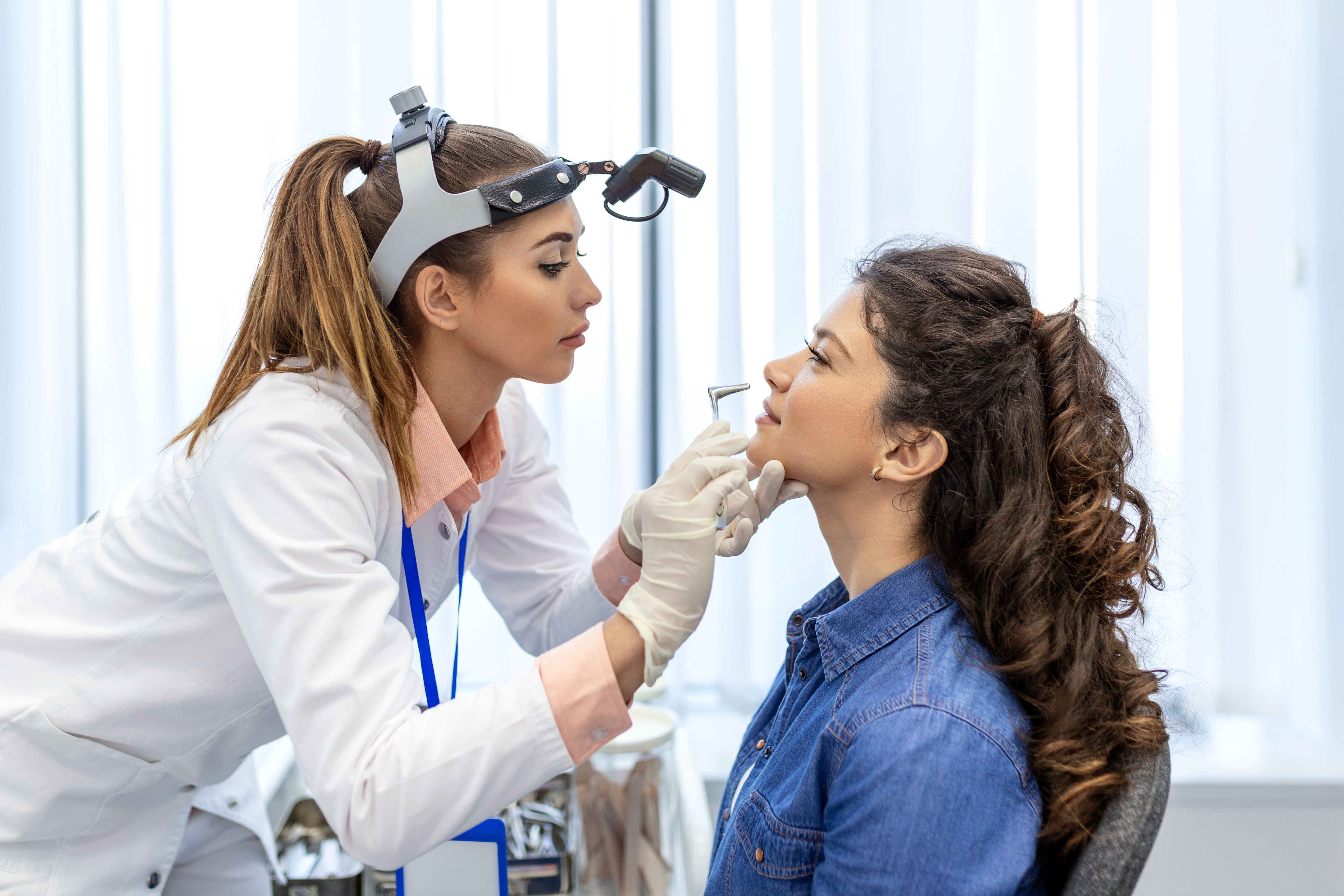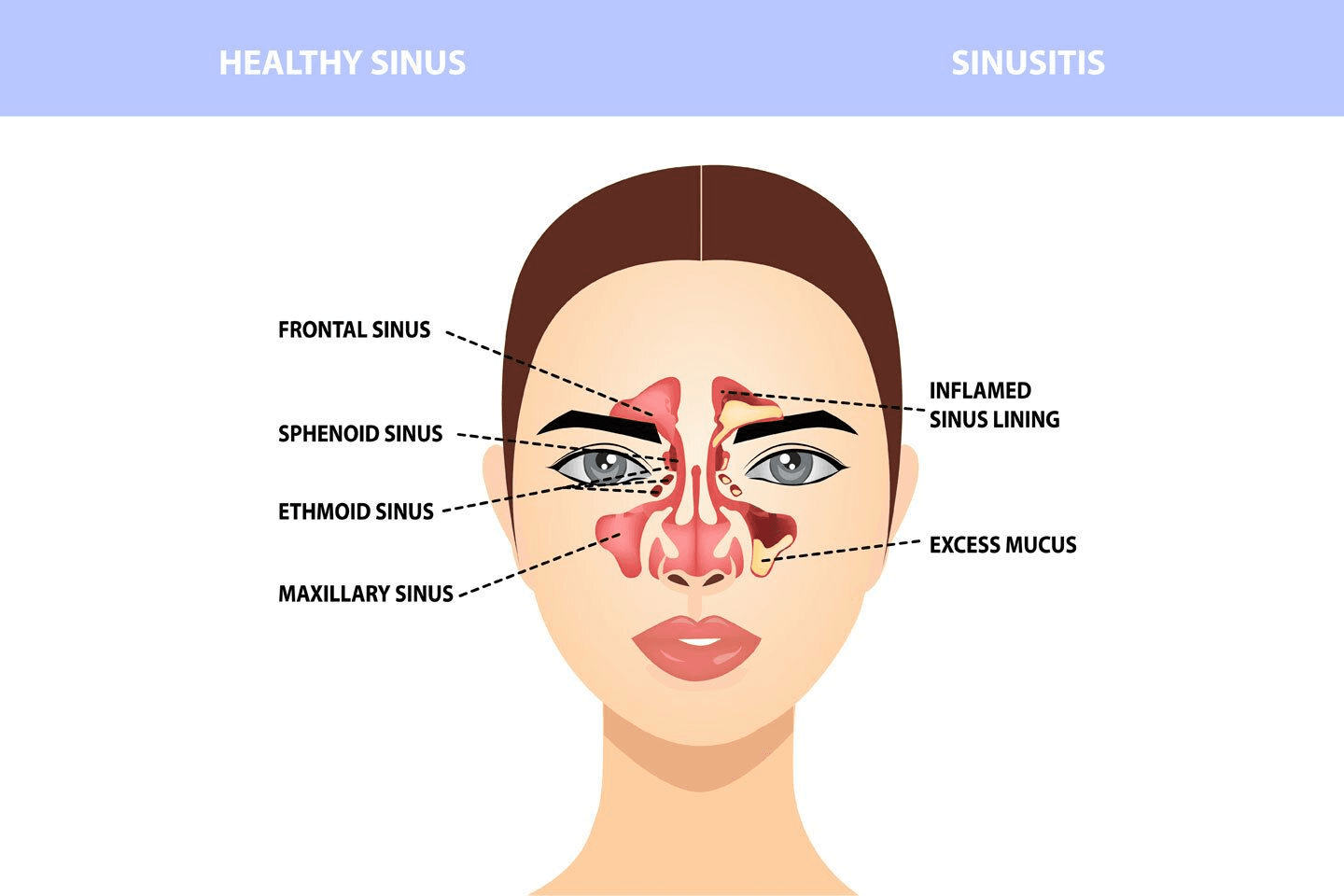
Why Ears Pop While Swallowing or Yawning?
Introduction
Ear popping may seem like a small, everyday thing—but it tells you a lot about how your ears are balancing pressure.
Have you ever yawned or swallowed and felt your ears make a popping sound? It might seem odd, but it's actually your ears doing what they're supposed to do. This popping is a natural way for your body to balance pressure. But if it happens too often or becomes uncomfortable, it could be a sign of something called Eustachian Tube Dysfunction (ETD). Let's understand what's happening inside your ears and when it may need attention.
The Eustachian Tube: Your Ear's Pressure Regulator
Deep inside each ear is a narrow passage called the Eustachian tube. This small tube connects the middle part of your ear to the back of your nose and throat. Its job is simple but important—it helps keep the pressure on both sides of your eardrum the same.
Most of the time, the Eustachian tube is closed. But when you do things like swallowing, yawning, or chewing, the tube opens briefly. This opening allows air to move in or out of the middle ear, balancing pressure between your ear and the outside world.
Without this tube, even small changes in altitude—like climbing stairs or driving uphill—could make your ears feel blocked or uncomfortable. It's truly your ear's personal pressure regulator!
Why Do Ears Pop When You Swallow or Yawn?
Your ears pop when you swallow or yawn because those actions help open your Eustachian tubes. These tubes connect your middle ear to the back of your nose and throat, and their main job is to balance air pressure. When you swallow or yawn, the muscles in your throat gently pull on the Eustachian tubes, allowing them to open for a brief moment.
This lets air move in or out of the middle ear, which helps equalize the pressure on both sides of your eardrum. That quick pressure change is what creates the "pop" sound or feeling. You'll notice this more when you're flying, driving through hills, or even after sleeping on one side. These are all situations where the pressure inside your ear needs to adjust to the pressure outside. In most cases, this is completely normal and shows that your ears are doing exactly what they're meant to do.
Occasional popping is normal, but when it becomes frequent or uncomfortable, it may signal an underlying issue.
Other Common Causes of Ear Popping
Colds or sinus infections
Allergies
Air travel/altitude changes
Rapid weather changes
When Popping Becomes a Problem: Signs of Eustachian Tube Dysfunction (ETD)
While occasional ear popping is normal, it can sometimes become bothersome. If your ears feel blocked for long periods or if the popping starts to hurt, it could be due to Eustachian Tube Dysfunction (ETD).[1]
This happens when the Eustachian tube gets blocked or doesn't open properly. Some signs to watch out for:
A feeling of fullness or pressure in one or both ears
Frequent popping or clicking sounds that don't go away
Pain or discomfort in the ears
Muffled hearing or difficulty hearing clearly
Feeling off-balance or slightly dizzy
Discomfort during flights or altitude changes that doesn't ease quickly
Eustachian Tube Dysfunction (ETD) can affect both adults and children. It's often more common during colds, allergies, or sinus infections, as swelling and mucus can block the tubes. Environmental factors like pollution or even frequent changes in air pressure can also make ETD worse.
How Is ETD Treated?
If the symptoms are mild, you can often manage them with simple tricks like:
Swallowing often
Yawning on purpose
Chewing gum
Performing the Valsalva manoeuvre (gently blowing with your nose pinched closed)
These methods help force the Eustachian tube to open and balance the pressure.
If you don’t feel better after trying these techniques for 1–2 weeks, it’s best to see a doctor. They may recommend balloon dilation therapy, a gentle option that helps widen the Eustachian tube so it can work properly.[2]
In this treatment, a small balloon is inserted into the Eustachian tube and gently inflated. This helps widen the passage and allows it to function better. Once done, the balloon is removed, and the tube often works more smoothly on its own afterwards.
This method is especially helpful for people who experience chronic ETD or discomfort that affects their daily lives.
When to See a Doctor?
You don't need to worry if your ears pop once in a while. But if you notice any of the following, it's a good idea to consult a medical professional:
Your ears feel full or blocked all the time
The popping is frequent and painful
Your hearing is muffled or fading
You feel dizzy or off-balance regularly
You've recently recovered from a cold or infection, and the pressure hasn't gone away
Ignoring these signs could lead to more serious ear problems later. Early help can prevent long-term issues and improve your ear's comfort.
Mycs™ by Meril Life
Mycs™ by Meril Life is a small medical device used by doctors to treat ear problems caused by blocked ear tubes. These tubes, called Eustachian tubes, help balance the pressure in your ears. Sometimes, they get blocked, causing pain, pressure, or a feeling of fullness. Mycs™ is a tiny balloon that doctors gently place in the tube to open it up. Once the balloon is in the right spot, it is carefully inflated to help the tube work better. This helps relieve pressure, reduce pain, and improve hearing. The device is designed to be safe, simple to use, and allows for quicker recovery so patients can feel better without major surgery.
The procedure is considered safe when performed by trained ENT specialists and is intended for patients who do not improve with medicines alone.
Conclusion
Popping ears during a yawn or a swallow is your body's smart way of balancing ear pressure. It happens thanks to the Eustachian tube, a small yet vital component of your ear system. Most of the time, this is completely normal and helps you feel comfortable during altitude changes or everyday movements.
But if that popping becomes too frequent, painful or is followed by hearing issues, it could be a sign of Eustachian Tube Dysfunction (ETD). Thankfully, this condition can be treated with simple techniques or balloon dilation therapy, depending on the severity.
Always listen to what your body is telling you. When something feels off with your ears, it's best not to ignore it. With the right care, you can keep your ears healthy and your hearing clear.
Key Takeaway:
Ear popping is usually harmless, but when it’s frequent, painful, or affects hearing, it may be due to Eustachian Tube Dysfunction — a condition that can be treated easily.



